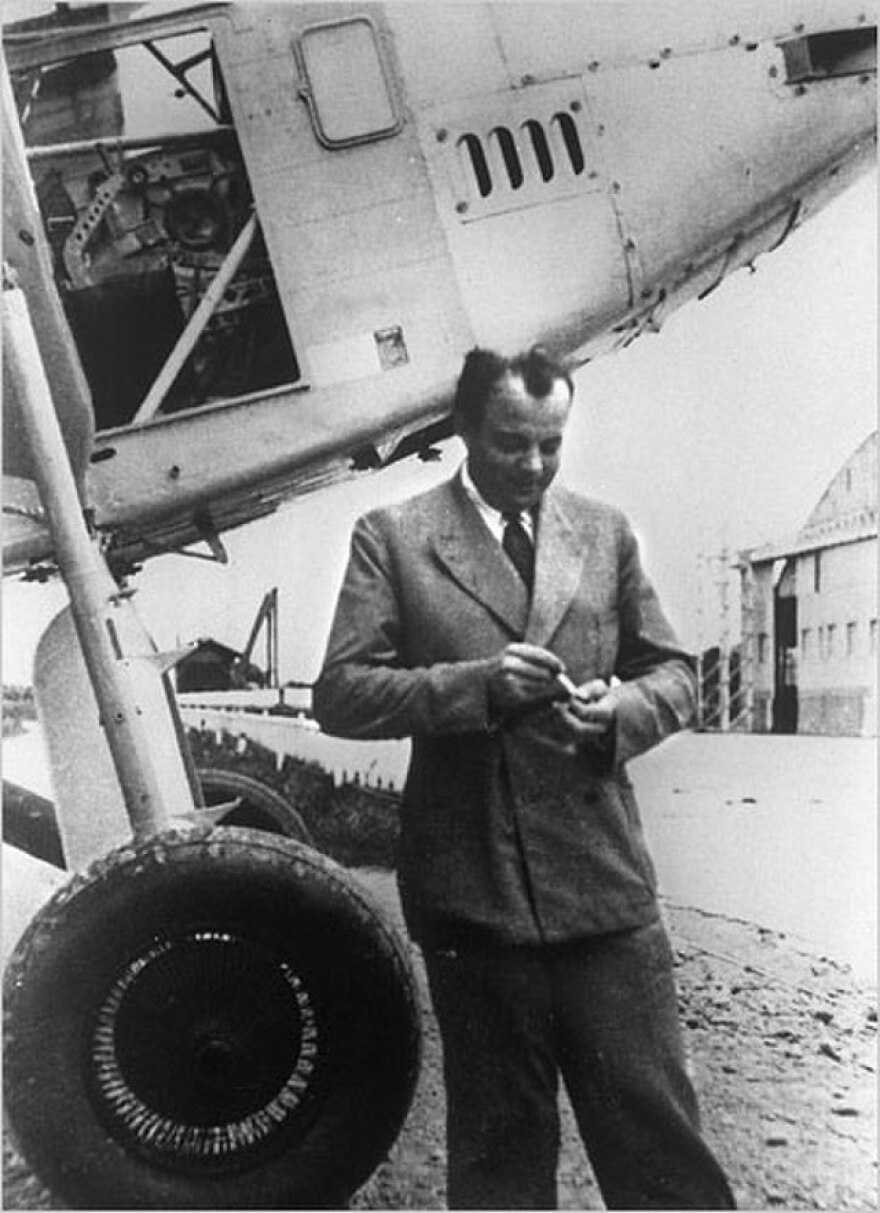This year, there are 80th anniversaries of World War II events almost every day—the D-Day anniversary on June 6 was a big one. But other anniversaries are overlooked.
One example: I saw a small news piece about a pilot last month and have been thinking about it ever since. July 31st was the day in 1944 when the French aviator Antoine de Saint-Exupery (Saint-Ex) took off on a photo reconnaissance mission and was never seen again, flying into legend.
He had flown his P-38 Lightning across the Mediterranean on a four-hour mission from Corsica, France with six hours of fuel.

Saint-Ex is the creator of "The Little Prince" (French title: "Le Petit Prince"), a children's book that has transcended the decades since its 1943 publication.
Years before that, Saint-Ex was a pilot for the new airline industry in Europe, which became a reality after the end of World War I. He flew professionally for an early French airline while writing on the side about the still-new 20th-century invention of flight.
New airplanes were created during the Second World War to transport war and death across borders. Those capable aircraft also transported passengers and cargo across national borders.
"Remember that below the sea of clouds lies eternity."Antoine de Saint-Exupéry
Saint-Ex, flying the mail from Toulouse, France, to Dakar, Senegal, described flying at night in his first novel, "Southern Mail" (French title: "Courrier Sud")
“A sky as pure as water bathed the stars and revealed them." He wrote, "Then there was night. The Sahara spread out, dune after dune beneath the moon.”
Saint-Ex wrote about flying with a sense of philosophical reality. Flying is no game but something else—something unexplainable—a new reality that the pilot can control only so much. Flying is forever woven with the weather.

He wrote the following in his 1939 memoir "Wind, Sand And Stars" (French title: "Terre des hommes").
“He should never let the clouds close beneath him but should dive through them at the right moment, through the last hole, even if that means flying at an altitude of only fifty meters," Saint-Ex wrote. "Navigating by the compass in a sea of clouds over Spain is very dashing...but you want to remember that below the sea of clouds lies eternity.”
Saint-Ex was prophetic in his writings and the world-changing effects of the new aviation era. He wrote in his memoir that the airplane has changed the world but cannot be considered an end.
”It is simply a tool, like the plow." He wrote, "All manmade machines are tools in his service, something humanity tends to overlook.”
He also expanded on the evolution of the aircraft in "Wind, Sand, And Stars," turning to the beauty of the form.
“Designers and engineers work for generations to turn the first machines into a natural, organic, aesthetic object...to give a hull or fuselage the elementary purity of a human breast or shoulder and balance a wing to the point where it passes unnoticed and seems flawless in its perfection...its parts mysteriously fused and resembling in their unity a poem.”

In 1940, Adolf Hitler's Nazi Germany invaded France, and Saint-Ex escaped through Portugal and went to the United States. He lived in the U.S. until 1943, when he returned to Algiers, Algeria, to fly for the Free French Air Force. He was with a squadron that flew American P-38 Lightnings, which had been converted to photo reconnaissance aircraft. He was required to take a very intense seven-week training course before his first mission.
He continued to write throughout these missions. Saint-Ex frequently flew with a lined notebook during his long, solitary flights, and some of his philosophical writings were created during periods when he could reflect on the world below him.
He flew only nine missions and vanished without trace 80 years ago. In 1998, a fisherman found a silver ID bracelet with his name near the island of Riou, south of Marseille, France. A couple of years later, a diver found the wreckage of a P-38 near where the bracelet was found.

The Saint-Ex biographer Stacy Schiff wrote: "Rarely have an author and a character been so intimately bound together as Antoine de Saint-Exupéry and his Little Prince." She also remarked on their dual fates: "The two remain tangled together, twin innocents who fell from the sky.”
While this is a grim anniversary, it also lets us celebrate a gifted pilot and writer.
Wishing you blue skies and tailwinds,
Dan Patterson is a Community Voices Producer and Aviation Commentator at WYSO. This story was produced at the Eichelberger Center for Community Voices.







